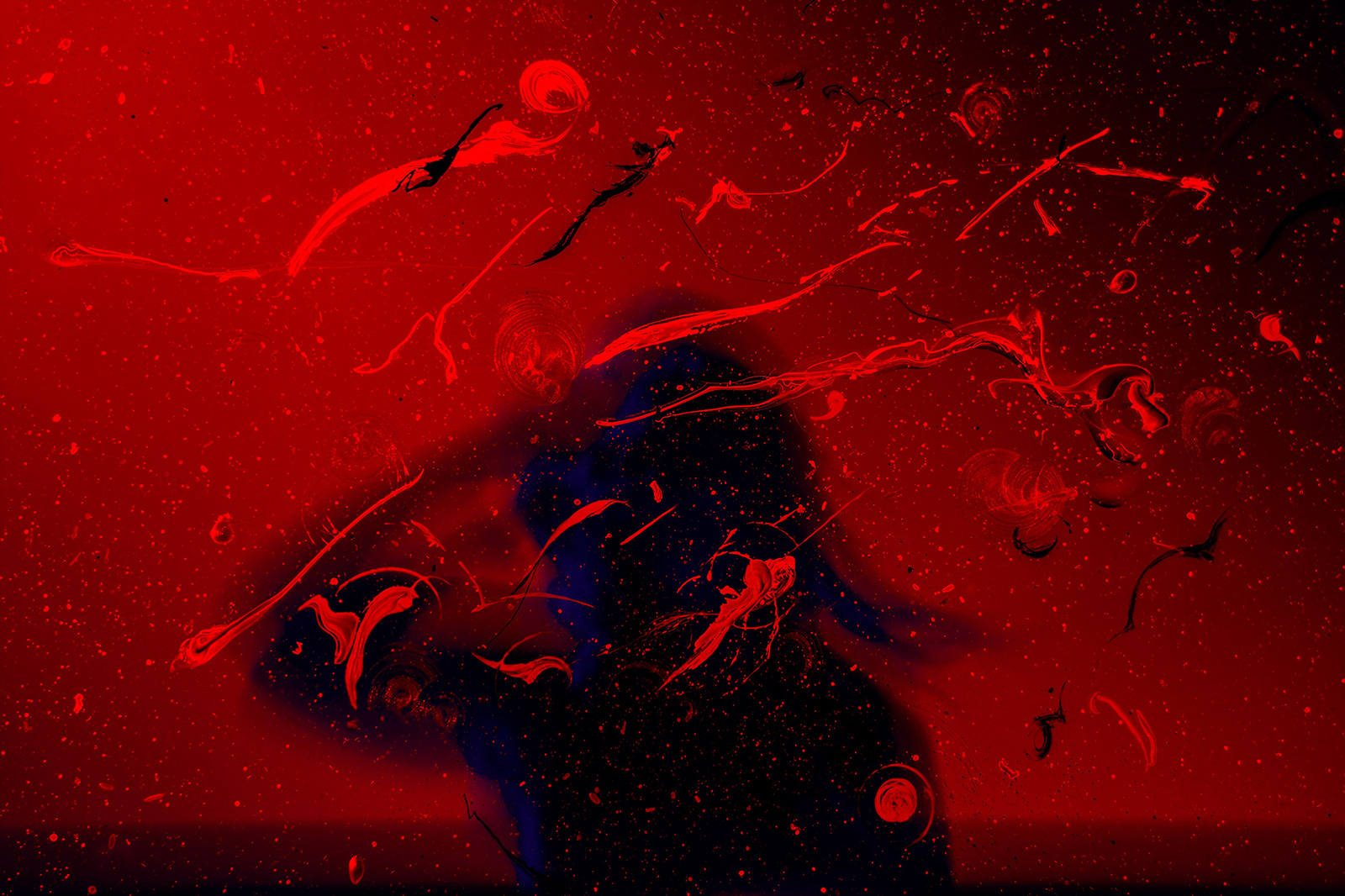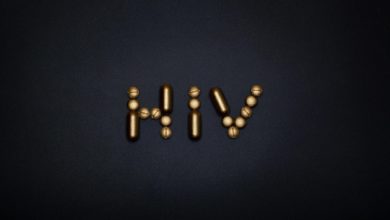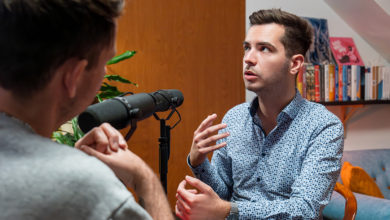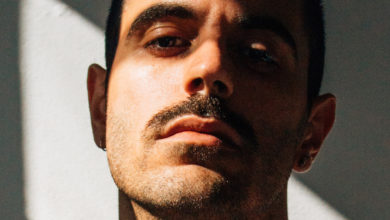„There are many parents out there living with HIV, but we are hiding”

It is extremely rare for parents living with HIV to talk about their health condition in the media. This is the case in almost all parts of the world, but it is especially true in Hungary, where the knowledge of the majority of society about the virus is stuck somewhere in the early 1990s, when HIV was still a death sentence in most cases. But this lack of knowledge is not surprising in a country where STD prevention is virtually non-existent in the education system. And that’s why it was a milestone for Éva to share her story with us in the summer of 2020. Since then, she has not only married, but also had a child with Ádám. We picked up the thread of her story together earlier this year.
Éva’s life went through a significant change since we last spoke. This is true for both of her personal life and her acceptance of her HIV status. While she still refuses to reveal her real identity in public, she has given plenty of interviews over the past two years. In fact, not only her, but also her husband, Ádám, who was once asked by a journalist if it was OK that Éva told him she was HIV-positive only after a month of dating. Shouldn’t she have told it sooner? Ádám replied that it was not a mistake, it was better that way.
„I kind of cheated by not telling him, but if I have told it on the first date, we would not be married and we would not have a child”, says Éva in the living room of their apartment, breastfeeding her baby son, Dani, who was barely four months old when I interviewed her. They talked a lot with Ádám about having a biological child together. Ádám was inherently not especially keen on it; he adopted Éva’s daughter Dorka and treated her as his own child from day one. „It’s not blood that makes us parents, it’s the heart,” says Éva, who sees her husband and daughter interacting every day. Concern, kindness and tenderness defines their relationship.
Éva learned with Ádám that relationships should be based not on attraction to a certain gender, but love. That’s why she thinks it’s stupid that two men can’t make perfect parents. And that’s why it upsets her that the Hungarian government is depriving the entire LGBTQ community of this opportunity. „I think it’s a sin to make parenthood about gender instead of love.”

The birth of her second child was preceded by a lot of preparation, organisation and excitement. She knew that she could have a baby while taking HIV medication, and during a consultation at Szent László Hospital, her doctor only asked her to switch to another kind of drug. She was also aware that she would have to give birth vaginally and, after studying a lot of international literature, she was convinced that there was no risk to her son if she breastfed him – even though the protocol in Hungary is still that breastfeeding is not recommended for mothers living with HIV.
As far as Éva knows, she is the first mother in Hungary to give birth in a public hospital as an HIV-positive mother. Other mothers with the same condition have to go to the infectology ward of Szent László Hospital two weeks before their due date, and when they go into labour, they are transferred to Szent István Hospital, where the doctor on duty delivers their baby. Éva has also had great luck with her obstetrician – the same doctor who helped her give birth to Dorka – who admitted that she was not really educated about HIV, but who has researched the virus and spoken to Éva’s doctor at the HIV outpatient clinic at Szent István Hospital. In addition, Éva brought him an official paper saying that, thanks to the HIV medication she was taking, her viral load was undetectable, i.e. she won’t infect anyone by any route.
The months of pregnancy were relatively calm for everyone. Dani was finally born unexpectedly a month before the due date, but he was not premature. The most embarrassing moment came during labour, when the paediatrician, whom Éva had never met before, burst in. „You know you can’t give birth vaginally, right?” – he snapped at Éva. Although a woman in this situation can’t really assert herself, she had to. She gave him the phone number of an infectologist who treated HIV-positive children, and he convinced him.
And Dani was born healthy. „Considering that I was still in hospital with an AIDS status in 2016, it’s quite amazing that I was able to give birth being HIV-positive now. Now that I had a healthy baby, I believe in my heart that I am not infectious.” After giving birth, Éva was given a separate room with her own trash can and rubber diaper. Whoever came in to see her, doctor on duty, nurse, cleaning staff, she talked to everyone, explaining why she was in isolation. She received good reactions, many of her “visitors” acknowledging that they knew virtually nothing about HIV. The paediatrician at the hospital, who came on to her during labour, said goodbye at the end of Éva’s six-day stay in hospital after giving birth, saying he was outraged that she had been isolated. Although she found the many conversations and knowledge-spreading helpful, she admits that this is not what she dreamt of as a young girl.

Her fondest memory will always be of the nurse who came to her sometime during the third day and told her how she had spent ten years caring for HIV-positive newborn babies and had once cared for the first baby with HIV adopted from Romania thirty years ago.
In her son’s final report, it was written that his mother is HIV positive, which Éva is not happy about for fear of stigmatisation. She would have been happier if it had only been mentioned that she had an immune disorder. „I’m afraid of what will happen if we have to go to the emergency room, for example, and they ask for the report. What will they do when they see my status? I don’t know what the consequences might be.”
Although Éva can count herself lucky regarding Dani’s birth, she is aware and experiences daily the ignorance about HIV. She is afraid to put her face and name out in public for fear that her family members would be stigmatised and put at risk. But she also does not want to remain completely silent. „It’s not my intention to come out and say I’m living with HIV, because I’m not bloody happy about living with HIV. Speaking out is a means to ensure that if another HIV-positive pregnant woman goes into hospital, she doesn’t have to fear that she won’t be admitted.”
Mother and son have been well, healthy and happy ever since. Éva has given several interviews in recent months and has been on the radio, where a mother in her daughter’s class recognised her voice and wrote to her, sharing that she knew someone living with HIV. ” There are many parents living with HIV, but we are hiding,” Évi wrote to her at the time. Through different channels, but more and more people are finding her, both supporters and those affected. She’s already spoken to at least three women who are HIV-positive themselves but want to have a baby and ask her for advice.
What are Éva’s goals for the coming years? She wants to build credibility in the community, present the daily challenges and contribute to reducing prejudice. „We don’t realise the burden we carry. Only when we can put it down for a moment.” For example, when she goes to the pharmacy near her home and the pharmacists already know she is living with HIV, and she doesn’t have to explain herself over and over again.
Dániel Waliduda
Instagram: @waliduda






